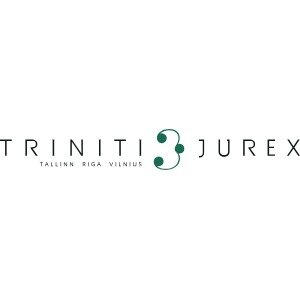Best Debt & Collection Lawyers in Estonia
Share your needs with us, get contacted by law firms.
Free. Takes 2 min.
Or refine your search by selecting a city:
List of the best lawyers in Estonia
About Debt & Collection Law in Estonia
Debt and collection law in Estonia is governed by a combination of civil law and specific statutes aimed at regulating the recovery of debts. The legal framework is designed to ensure fair treatment for both creditors and debtors, emphasizing transparency, the right to information, and the proportionality of the actions taken against debtors. The law provides mechanisms for creditors to recover debts while protecting debtors from abusive practices.
Why You May Need a Lawyer
There are several common situations in which individuals or businesses may require legal assistance regarding debt and collection in Estonia. This includes instances where there is a dispute over the validity or amount of the debt, when a creditor is employing unfair or aggressive collection practices, and when navigating insolvency procedures. Additionally, businesses seeking to collect debts from overseas clients may require legal advice to understand the international aspects of debt recovery.
Local Laws Overview
Key aspects of local laws related to debt and collection in Estonia include the Debt Collection Act, which outlines the rights and responsibilities of creditors and debtors. The law stipulates that creditors must provide clear information about the debt and avoid unethical practices such as harassment. Another important component is the Civil Code, which addresses contractual obligations, including the specifics of loan agreements and debt repayment terms. The Bankruptcy Act outlines the procedures and consequences for insolvency, ensuring a balanced approach to both debtor protection and creditor repayment.
Frequently Asked Questions
What should I do if I am unable to pay my debts?
If you find yourself unable to pay your debts, it is advisable to contact your creditors as early as possible to discuss potential repayment plans or settlements. Additionally, seeking the assistance of a legal professional can help guide you through your options.
What are debtors' rights in Estonia?
Debtors in Estonia have the right to be treated fairly and to receive clear and accurate information about their debts. They are also protected from aggressive and unethical collection practices. The law requires that any debt collection activities must be proportionate and justified.
How long does a creditor have to collect a debt in Estonia?
The statute of limitations for debt recovery in Estonia is generally ten years. However, this period may vary based on the nature of the claim and specific circumstances of the debt.
Can a creditor garnish my wages in Estonia?
In Estonia, creditors can request the court to garnish a debtor's wages if the debtor fails to repay the debt voluntarily. However, certain income levels are protected to ensure the debtor's basic living needs are met.
What is the process for recovering a debt from a business in Estonia?
The process typically involves notifying the debtor company of the outstanding debt and, if necessary, seeking legal action through the courts. A lawyer experienced in business collections can be particularly helpful in navigating these proceedings.
Are there any specific laws regarding international debt collection in Estonia?
International debt collection in Estonia can be complex, involving EU regulations such as the European Payment Order. It's advisable to consult a lawyer who is knowledgeable in international debt recovery to address cross-border cases effectively.
What happens if I am declared bankrupt in Estonia?
If you are declared bankrupt, an administrator will be appointed to manage your assets and debts. The Bankruptcy Act outlines the consequences of insolvency, which may include liquidating assets to repay creditors and establishing a repayment schedule.
Can I negotiate with creditors to reduce my debt?
Yes, negotiation is often possible. Many creditors are willing to discuss reduced repayment amounts or extended payment terms to avoid lengthy legal processes. A legal advisor can assist in these negotiations.
What should I do if a debt collector violates my rights?
If a debt collector violates your rights, you should document the incidents and consider filing a complaint with relevant authorities or taking legal action. Contacting a lawyer can provide guidance on how to proceed.
How can I ensure compliance with debt collection regulations?
Ensuring compliance involves understanding and following the Debt Collection Act, providing accurate information to debtors, and avoiding aggressive practices. Consulting with a lawyer can help you navigate the legal requirements effectively.
Additional Resources
The Estonian Ministry of Justice and local Consumer Protection Board are valuable resources for understanding your rights and obligations concerning debt and collection. The Estonian Bar Association can also help you find qualified legal professionals specializing in this field.
Next Steps
If you require legal assistance with debt and collection issues, consider consulting with a lawyer who specializes in this area. Start by gathering all relevant documentation related to your debts, then schedule a consultation to discuss your situation and explore your options. You may also wish to contact local bar associations or legal aid organizations to find affordable legal support if needed.
Lawzana helps you find the best lawyers and law firms in Estonia through a curated and pre-screened list of qualified legal professionals. Our platform offers rankings and detailed profiles of attorneys and law firms, allowing you to compare based on practice areas, including Debt & Collection, experience, and client feedback.
Each profile includes a description of the firm's areas of practice, client reviews, team members and partners, year of establishment, spoken languages, office locations, contact information, social media presence, and any published articles or resources. Most firms on our platform speak English and are experienced in both local and international legal matters.
Get a quote from top-rated law firms in Estonia — quickly, securely, and without unnecessary hassle.
Disclaimer:
The information provided on this page is for general informational purposes only and does not constitute legal advice. While we strive to ensure the accuracy and relevance of the content, legal information may change over time, and interpretations of the law can vary. You should always consult with a qualified legal professional for advice specific to your situation.
We disclaim all liability for actions taken or not taken based on the content of this page. If you believe any information is incorrect or outdated, please contact us, and we will review and update it where appropriate.
Browse debt & collection law firms by city in Estonia
Refine your search by selecting a city.














